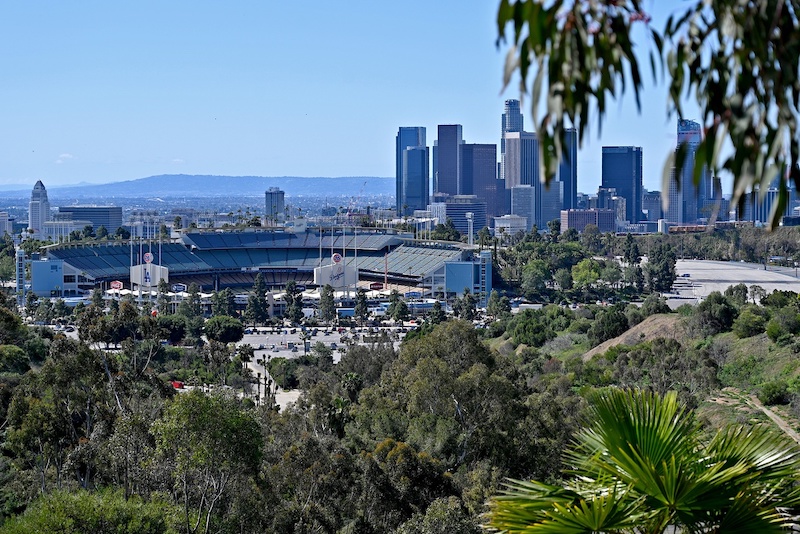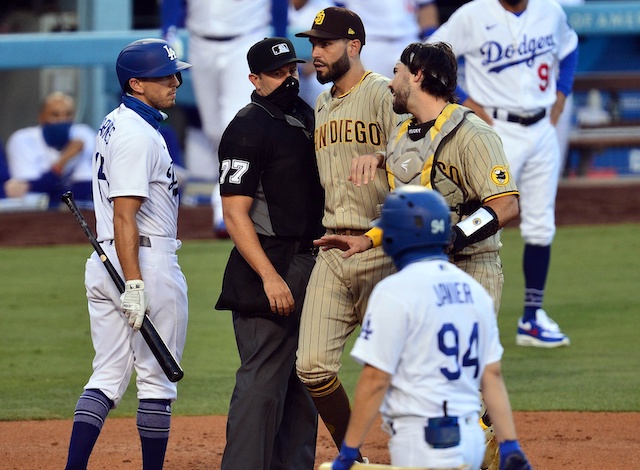It’s not simply a gulf that separates the Los Angeles Dodgers and the Detroit Tigers – it’s a vast, shimmering, apparently-uncrossable ocean.
The Dodgers begin this strange, tumultuous year with a seven straight National League West title under their belt (and a franchise-record-breaking 106 wins in 2019) and are riding high with one of the best lineups in the history of the franchise. If that didn’t already loom large enough this season, the Dodgers went on and hit 57 home runs in August, a record for the most home runs scored in a calendar month by an NL team in MLB history. They currently lead all of baseball with a 30-11 record.
And then you’ve got the Tigers, whose 2019 season was a woeful catastrophe. Detroit finished at the bottom of American League Central with 47-114, their worst performance since the dim and distant days of 2003. Beleaguered manager Ron Gardenhire delivered quite the understatement by describing it as a “tough season”, and speaking of the need to “get back into the groove”.
The Tigers have admittedly settled into this much-needed groove of late, ending August with a string of wins. But, when you contrast headlines plucked from the past 12 months such as “Could these Tigers be Baseball’s Worst Team Ever?” (The Detroit News) and “Why Dodgers Are MLB’s Best Team in 2020” (Sports Illustrated), the difference in the standing of these teams could not be starker.
However, there’s another way they dramatically differ – a rather happier way, as far as the Tigers and their fans are concerned. It involves the shifting landscape of sportsbook sponsorship in Major League Baseball. Lucrative opportunities offered to teams that happen to be based in states where sports betting is legal. In other words, teams that aren’t the Los Angeles Dodgers.
In July of this year, news broke that the Detroit Tigers had been garlanded with a big, fat partnership with Australian online bookmaker PointsBet. This was more than just another sponsorship deal in the world of sports. It was, in fact, an entirely unprecedented windfall for a Major League Baseball team, prompting Johnny Aitken, CEO of PointsBet USA to proudly declared, his company had become “the first legal sports betting operator in US history to partner with an MLB franchise.”
The deal – whose exact dollar figure has not been made public – allows PointsBet to emblazon Comerica Park with broadcast-visible branding, and establish a presence on Tigers’ digital sites. It’s also earned the bookmaker spots on the Detroit Tigers Radio Network. All of which is exciting for anyone who’s stuck by the team through their recent turbulent times. “Our incredible fans will love the unique experiences and innovative offerings that PointsBet’s personalized platform provides,” said Chris Granger, a bigwig at Tigers’ parent company Ilitch Holdings. “We look forward to the fan-friendly enhancements this will bring to the game-day experience in and around Comerica Park for years to come.”
This trailblazing deal comes in the wake of sports betting finally being legalized in the state of Michigan back in December 2019. PointsBet wasted no time making its move into this fertile new territory, almost immediately inking a 20-year deal with the
Lac Vieux Desert Band of Lake Superior Chippewa Indians to access the Michigan betting market. The partnership with the Tigers is further confirmation of how the whole gambling landscape is radically changing in Michigan. As well as the obvious financial benefits for the Tigers, the state itself is potentially set to bring in up to $400 million in sports betting revenue in the first year alone, equating to tens of millions of dollars in tax.
Dodgers fans will have to keep patiently drumming their fingers while waiting for their team to get a slice of that betting site sponsorship pie. The state is still stuck in a stalemate on this highly contentious issue, with the California sports betting bill yanked from consideration for this year’s November ballot by its own creator, Senator Bill Dodd. The reasons included complications related to the Covid-19 pandemic and vocal objections to the nuances of the bill by Native tribal leaders who are opposed to online gambling. “It was a bad bill, written without tribal input,” commented tribal lobbyist David Quintana. “It got the finish it deserved.”
It could be years before the legislation can change, and the impact on baseball teams shouldn’t be underestimated. Sure, the Dodgers are looking better than ever on the diamond. But the potential for sportsbook cash injections to less prominent teams in other states where online betting is allowed could give the likes of the Detroit Tigers a much-needed boost in a world where finances can play a major role in the success of teams.
The frustration has been expressed elsewhere in the United States. Take the Red Sox for example. As in California, sports betting legislation in Massachusetts has stalled, and back in July a senior spokesperson for the Red Sox, David Friedman, spoke openly about how “four months into this pandemic, mobile sports betting takes on a new urgency for the leagues and teams.” He went on to emphasize how “today, every single dollar of advertising and sponsorship revenue is extremely important to us.”
Boasting the biggest population of any state, California would be the focus of a modern-day gold rush for betting sites if online gambling is legalized. It’s speculated that there would be something in the region of $30 billion in wagers placed annually, and the potential riches for the Dodgers in the form of sponsorship deals and associated gambling revenue is… well, we’re talking “Scrooge McDuck diving into swimming pools of gold coins”-type revenue. It seems this is something that ownership is actively thinking about. When renovation plans for Dodger Stadium were released, it included two sports bars containing a ribbon odds feed for major US sports. In the meantime, let’s try to be magnanimous and be happy for the Tigers’ good fortune. At least until the turbo boost of their newfound revenue starts making them look like a World Series-level threat.










